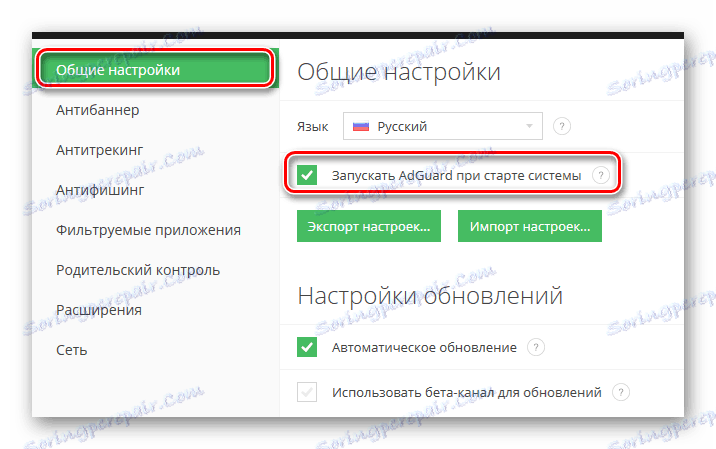

- #Adguard adblock permissions full#
- #Adguard adblock permissions code#
- #Adguard adblock permissions download#
#Adguard adblock permissions download#
First, an ad blocker download filter lists. How ad blockers workĪs it's been mentioned before, ad blockers are 'translators' that interpret filtering rules. That's why we find it absolutely necessary to describe in detail how it functions and what's wrong with the current implementation of Manifest v3.Īnd perhaps some of our readers would like to know how it all works, too. This article is aimed at Google Chrome developers: we want to believe that they don't have a goal of hurting this ecosystem, but rather simply lack a proper understanding of it. And these changes threaten to end the filters ecosystem as we know it. You may have heard of the upcoming changes in Chrome browser, also known as Manifest v3. Thousands of volunteers continuously work on keeping them up-to-date, making sure they block ads and don't break anything important. They understand this complex syntax and perform actions with web traffic based on what these rules tell them to do: block specific elements, change web pages in certain ways, etc.

If we were to compress ad blockers' job into a few words, we'd say "ad blockers interpret filtering rules". But under V3, they are treated like accessories, given limited privileges and only allowed to execute reactively.How do ad blockers work? At the very core of any ad blocker lie filter lists (also called 'filters') - literally lists of rules written in a special syntax. They wrote, "Under Manifest V2, extensions are treated like first-class applications with their own persistent execution environment. The future of content blocking in web browsers looks a lot like the way it was described by Alexei Miagkov and Bennet Cyphers from the EFF last December. "The only thing you might notice is ad flickering due to the lag in the application of cosmetic rules." "Although the experimental extension is not as effective as its predecessor, most users won't feel the difference," said Seregin in a blog post just over a week ago. While MV3 forced extension makers to rely on declarative rules (set in advance) rather than dynamic ones (generated on the fly), Seregin nonetheless suggests AdGuard will manage. Brave, for example, will need to launch its own extension store because the Chrome Web Store won't be an option.ĭmitriy Seregin from AdGuard offered a slightly more optimistic take in his description of his firm's effort to create AdGuard AdBlocker MV3 Experimental. Outliers like Brave and Mozilla have said they plan to continue support for MV2, though some resources will be required to do so. Apple Safari introduced support for MV3 in version 15.4 and while Apple has not indicated whether it intends to drop support for MV2, it removed the blocking WebRequest API years ago.

That's likely to be the case for Microsoft Edge, which has endorsed MV3. That advice won't be viable as of January, when Manifest v2-based extensions will stop working in Chrome. Translation: We made them too powerful, we'll cram this genie back in its bottle CONTEXT
#Adguard adblock permissions code#
This approach avoids presenting the extension user with an installation warning that the installed code can "Read and change all your data on all websites" – which may sound scary but is generally what you want when using an add-on that cleans up all the webpages you visit.īut this "permission-less" approach means the extension cannot carry out operations supported by uBlock Origin, such as custom JavaScript injection or filtering of redirects, CSP (content security policy) directives, URL parameters, and cosmetic page elements. This function replaces the webRequest API from MV2, which allows a JavaScript event handler to modify network requests and has been the primary mechanism for intercepting unwanted network content.Īs Hill explains in his commit text, his extension uses declarativeNetRequest to conform with Google's stated goal for MV3 to not require the broad "read/modify data" permission. UBO Minus relies on the declarativeNetRequest API in MV3 to block content.
#Adguard adblock permissions full#
Makers of ad blockers and browser privacy extensions fear the end is near FULL STORY


 0 kommentar(er)
0 kommentar(er)
